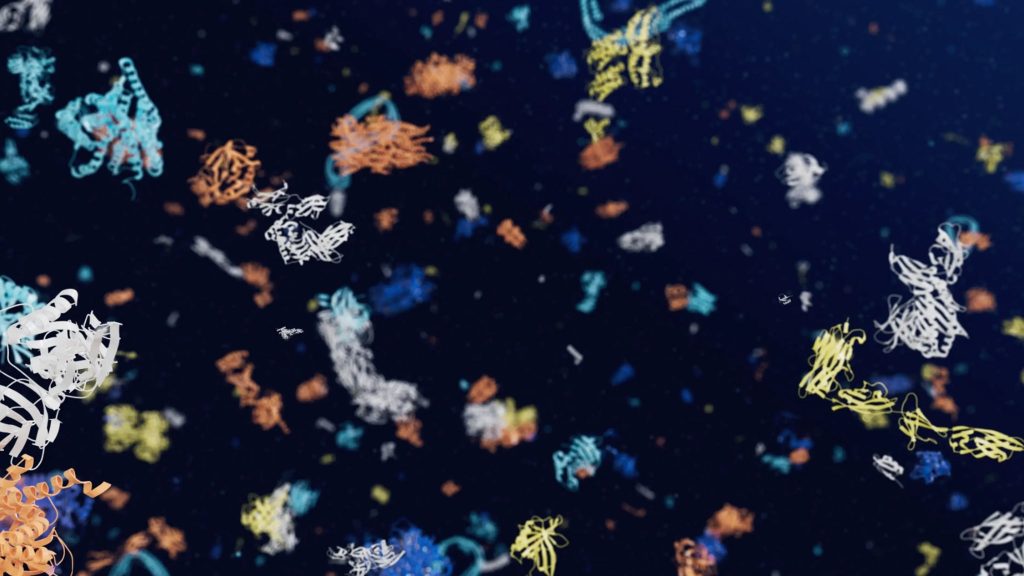SAN FRANCISCO—Glycoproteomic serum profiles can accurately detect advanced adenomas with a sensitivity rate that appears to set it apart from other emerging blood-based assays for the early detection of colorectal cancer, investigators from InterVenn Biosciences reported at the 2023 ASCO Gastrointestinal Cancers Symposium (abstract 69).
“While there are other assays available for use in the market, to date none of these have sensitivity levels that are clinically useful for detecting advanced adenomas,” principal investigator Khushbu Desai, a data scientist with InterVenn, told Gastroenterology & Endoscopy News. “This has been a shortcoming for newer technologies that rely on circulating tumor DNA and/or proteins. Although these assays are improving the detection rate for malignant tumors, they still have a low detection rate for precursor lesions.”
The new approach relies on aberrant protein glycosylation pathways that can be associated with early-stage disease, Ms. Desai explained. “Aberrant glycosylation is a good indicator that the immune system has been triggered to recognize the beginnings of disease. It doesn’t rely on the increasing tumor size to leach more material into the bloodstream,” she said.
Harnessing Artificial Intelligence
Ms. Desai and her team developed a model to better understand glycosylation in premalignant and malignant CRC, ultimately producing a biomarker panel that can detect advanced adenomas and CRC in blood samples.
The glycoproteomics platform combines liquid chromatography/mass spectrometry with a proprietary artificial intelligence–powered data processing engine that can rapidly interpret the resulting chromatographic peaks (i.e., changes in glycosylation).
“While deciphering these chromatographic peaks in glycoproteomics is conventionally labor-intensive, the AI model does the ‘peak picking’ in a matter of a few minutes per sample,” Ms. Desai said. “In addition to detecting glycopeptides, it can actually help us quantify these highly reproducible biomarkers.”
To detect glycoproteomic profiles associated with CRC and advanced adenomas, the investigators studied serum glycoproteins in 563 retrospective patient samples sourced from biorepositories. This included 247 CRC samples, 32 advanced adenoma samples, 88 samples from people with ulcerative colitis and 196 from healthy controls. Ulcerative colitis samples were included as noncancerous gastrointestinal disease controls to ensure that the test did not overlap with nonspecific inflammatory signals known to be associated with malignancies.
The team found 250 glycopeptides/peptides that were differentially abundant in CRC and advanced adenoma samples compared with control samples. They created a machine learning model on a training set that yielded a six-biomarker classification model to identify CRC and advanced adenoma samples and validated the model.
The model achieved a strong performance in the retrospective test set, with an overall sensitivity of 91%, overall specificity of 92% and overall accuracy of 92% for identifying affected individuals versus controls. The area under the receiver operating characteristic curve was 0.96.
Advanced adenomas and CRCs were predicted with a sensitivity of 84% and 93%, respectively, relative to controls. The sensitivity was 91% for stage I/II CRC and 93% for stage III/IV.
“Our results indicate that peripheral blood glycoproteomic profiles of abundant proteins show statistically significant differences among individuals with colorectal cancer and advanced adenomas versus healthy and ulcerative colitis controls,” Ms. Desai said.
The next step in the development process will be to analyze samples from their company’s ongoing prospective clinical trial of patients from 11 U.S. gastroenterology practices, she noted.
Potential Role During Screening Intervals
Trilokesh D. Kidambi, MD, the director of the colon cancer screening program at City of Hope, in Duarte, Calif., said a blood-based test could improve adherence to CRC screening recommendations. “These results, if replicated on a larger scale, will be extremely meaningful to patients and the healthcare system as a whole,” he said. The role of such a blood-based test in clinical practice is unclear at this point, he added, but might extend beyond screening and surveillance “to detect biologically aggressive polyps” that might develop during screening intervals.
Dr. Kidambi cautioned, however, that while the InterVenn assay detected advanced adenomas at a relatively high rate, “it remains to be seen if the test is able to identify traditional adenomas as well as the serrated adenomas that, we are learning, are likely associated with post-colonoscopy CRC.” (See related story, page 35.) —Caroline Helwick
Original news release here.



